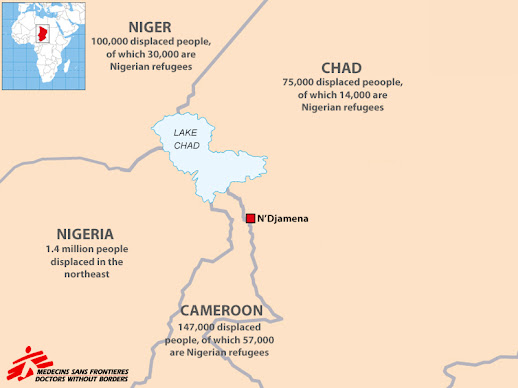Hindou Oumarou Ibrahim’s TED Talk on Lake Chad
Hi! This is just a brief post to recommend the 2020 TED Talk of Hindou Oumarou Ibrahim on the benefits of indigenous knowledge for addressing issues of climate change in the Lake Chad region.
The environmental activist, part of the Mbororo community in Chad, talks about the dramatic effects of climate change on the Lake Chad Basin’s resources and on her traditional nomadic herder practices. She expresses the consequences that it had on the people’s social life, especially, the migration of men to other parts of the basin or even to Europe, in order to feed and sustain their families, and ‘those left behind’, namely the women, who have to take up the role of men for security, food and water. Most importantly, she advocates in favour of using indigenous knowledge in order to find coping mechanisms and survive in the water-stressed environment of the Lake Chad. Integrating traditional knowledge with Western-centred technology and science would develop a combined approach in which people are at the centre of the decision-making in order to adequately adapt to climate change. Her own experience of participatory approach, during which both men and women have contributed to the mapping of sacred places, water points and transhumance corridors around the lake, is an important step towards shared water management and regional security.
Enjoy!




Hi Léa, I really like your synthesis of Hindou Oumarou Ibrahim's TED talk. Your post made me think of the 2nd principle of the 2030 UN SGDs: Leave No One Behind! By combating rising inequalities of water provision that lead to migration, your perspective on indigenous knowledge fits into this goal. How do you think Western scientists should learn more about indigenous knowledge?
ReplyDeleteThank you for your comment!! There are so many examples of grass-root projects combining Western scientific knowledge and indigenous forms of knowledge. For instance, Madon in a 2000 paper talks about the Honey Bee electronic project in 1990 India for which indigenous traditions have been numerically classified. Local technique of herbal medicine or natural insecticides have deeply contributed to the promotion of economically and environmentally friendly activities by NGOs. It is not only a question of Western scientists learning something from indigenous knowledge, it is most importantly about the revalorisation and redefinition of other forms of knowledge than the ones from the Global North.
Delete